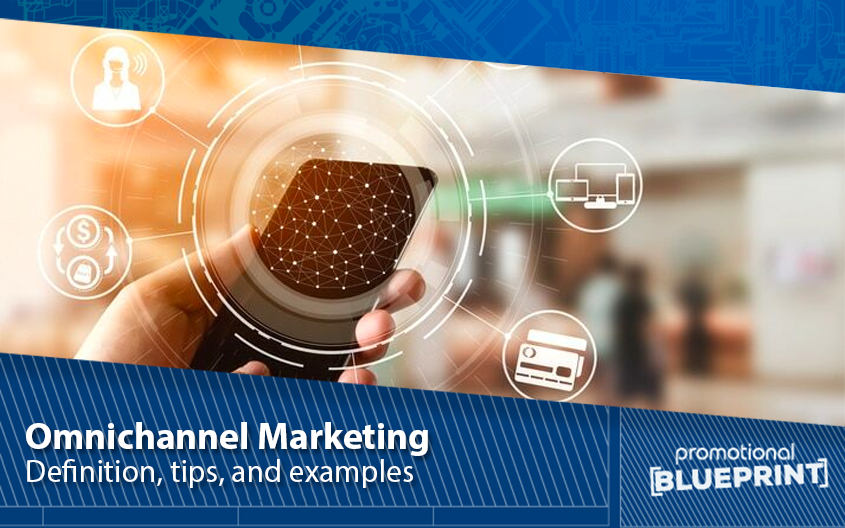
Omnichannel marketing is a modern approach to marketing that connects customers across multiple channels, such as in-person, online, mobile, and more. It helps businesses create a unified, seamless customer experience and build relationships with customers. In this blog post, we’ll explore the definition of omnichannel marketing, discuss tips and strategies for creating an omnichannel strategy, and provide examples of successful campaigns. With the right approach, omnichannel marketing can be an effective tool for driving customer engagement and loyalty.
What Is Omnichannel Marketing?
Omnichannel marketing is an approach to marketing that focuses on providing a consistent customer experience across multiple touchpoints, including physical stores, websites, mobile apps, social media, and more. It allows businesses to effectively communicate and engage with customers through a variety of channels and devices.
At its core, omnichannel marketing is about creating a unified shopping experience for customers by ensuring their interactions with a brand are seamless and consistent regardless of their device or platform. This means having a clear strategy for sharing content and information across various channels and devices to maximise engagement and sales.
Omnichannel marketing has become increasingly important in today’s competitive marketplace as consumers are looking for a personalised and seamless shopping experience. To create a successful omnichannel marketing strategy, businesses should leverage data to understand customer behaviors, create unique content for each channel, and optimise their user experience.
The Benefits of Omnichannel Marketing
Omnichannel marketing is quickly becoming one of the most popular strategies for companies looking to reach and engage with their customers. This type of marketing focuses on creating a seamless, integrated experience for customers across multiple channels, including online, mobile, in-store, and more. By utilising omnichannel marketing, companies can create a unified brand presence and provide customers with a consistent experience no matter which channel they’re using.
Omnichannel marketing offers many benefits that can help businesses increase sales, improve customer retention, and build loyalty.
Here are some of the key benefits of omnichannel marketing:
- Improved Customer Experiences: With omnichannel marketing, companies can give customers an integrated experience across all touchpoints. This makes it easier for customers to shop, browse, and purchase products without having to switch between different channels. This seamless experience ensures customers are not only more satisfied but also more likely to make purchases.
- Increased Engagement: Omnichannel marketing provides businesses with the opportunity to reach their customers on multiple platforms, resulting in higher engagement rates. Companies can use different platforms to promote their products or services, respond to customer inquiries, or share helpful content. This increased engagement allows companies to better understand their customers and tailor their marketing strategies accordingly.
- Higher Conversion Rates: By providing customers with an easy-to-use experience across multiple channels, businesses can increase their conversion rates. Customers are more likely to complete a purchase if they don’t have to switch between different channels or jump through hoops to do so. By utilising an omnichannel approach, companies can create a streamlined purchase process that increases conversion rates.
- Increased Brand Awareness: Omnichannel marketing allows companies to reach their target audience on multiple channels and platforms, making it easier for them to spread brand awareness. Companies can leverage social media channels such as Instagram and Facebook to reach a wider audience or use email newsletters and other content marketing strategies to get the word out about their brand.
Overall, omnichannel marketing is a great way for businesses to create a unified presence across multiple channels and increase customer satisfaction. By utilising this approach, companies can improve customer experiences, increase engagement and conversions, and build greater brand awareness.
The Challenges of Omnichannel Marketing
While omnichannel marketing can be a powerful tool to engage customers, it also presents its own set of challenges.
The most significant challenge with omnichannel marketing is ensuring that all the different channels are properly connected and working together. This requires a comprehensive strategy that links all the customer touchpoints together. This means a customer should have access to the same information, products, and services regardless of the channel they’re using.
Another challenge with omnichannel marketing is maintaining customer data across channels. This includes collecting data from each touchpoint and integrating it into one unified profile. This unified profile will allow marketers to gain insights into customer behavior and preferences, which can be used to personalise messaging and offers.
The final challenge of omnichannel marketing is delivering consistent customer experiences across channels. This requires taking into account customer expectations when creating campaigns and developing strategies. This can be a difficult task since customer preferences may vary based on the channel being used.
Overall, while there are many challenges associated with omnichannel marketing, the potential benefits far outweigh them. By using an omnichannel approach, businesses can create a unified customer experience and deliver more personalised messages that can help increase engagement and sales.
Tips for Implementing an Omnichannel Marketing Strategy
When it comes to digital marketing, omnichannel strategies are essential for any business looking to maximise reach and engagement with its target audience. With an omnichannel approach, businesses can deliver a cohesive customer experience across all channels, creating a seamless journey for customers. Below, we’ll cover some tips for implementing an omnichannel marketing strategy.
- Define Your Goals: Before diving into an omnichannel strategy, you must first define your goals and objectives. Identify what success looks like and how you will measure it. This will help you create targeted campaigns that are tailored to meet your objectives.
- Utilise Data: Data is essential for any successful marketing strategy. Utilise data-driven insights to identify the best channels and strategies for reaching your target audience. This will help you create content and campaigns that resonate with your target audience.
- Leverage Automation: Automation tools can help streamline processes and maximise efficiency. Utilising automated tools will free up more time so you can focus on other aspects of your marketing strategy.
- Focus on Quality Content: Quality content is the backbone of any effective omnichannel strategy. Make sure your content is consistent across all channels and tailored to the needs of your target audience. This will help ensure that customers have a positive experience when engaging with your brand.
- Invest in Personalisation: Personalisation is key for any successful marketing strategy. Invest in technology that allows you to tailor content and experiences to each customer’s needs and preferences. This will make them feel valued and increase engagement.
By following these tips, you can develop an effective omnichannel marketing strategy that will help you maximise reach and engagement with your target audience. Keep in mind that it may take some time to see results, but if you stay committed and keep iterating on your strategy, you’ll be well on your way to achieving success!
Related content:
Why is Data Important for Your Business?
Examples of Omnichannel Marketing
Omnichannel marketing is a way of engaging customers across multiple channels and touchpoints, such as email, social media, print, mobile, and more. An omnichannel approach allows companies to create a seamless customer experience, as customers can access the same information and services no matter what channel they are using.
Here are some examples of omnichannel marketing in action:
- A restaurant chain creates an app for customers to order food from their mobile devices. The app then automatically sends push notifications to remind customers when their order is ready and allows them to pay without having to wait in line.
- A retail store uses digital signage in its stores to provide customers with additional product information and reviews. When customers see a product they like, they can scan a QR code to add it to their cart, allowing them to purchase without having to visit the checkout line.
- An online clothing retailer offers customers the ability to virtually try on clothes before buying. Customers can upload a picture of themselves, enter their measurements, and then select items they want to try on virtually before making a purchase decision.
- A hotel chain sets up automated check-in kiosks in its lobby. Customers can scan their IDs and credit cards upon arrival, which triggers personalised messages sent directly to their phones, including check-in details and any other special offers available at the hotel.
By leveraging multiple channels, companies can create an integrated experience that improves customer engagement and drives conversions. By implementing an omnichannel strategy, businesses can reach more customers and build stronger relationships with them over time.
Conclusion
Omnichannel marketing is an effective strategy for reaching and engaging customers in today’s digital world. By creating an integrated and cohesive customer experience across all of your digital channels, you can better connect with customers and drive sales. However, it’s important to remember that this type of marketing requires time and effort to be successful. Utilise the tips, examples, and strategies discussed above to ensure that your omnichannel marketing efforts are successful. Good luck!
You may also like:
Marketing Environment: An Explanation of Components and Importance
In line with GoPromotional’s streamlining efforts and implementation of omnichannel marketing strategies, you may also check out our full collection of promotional products which includes pens, notebooks, mugs, travel mugs, and bags. If you require further information or have any specific questions, don’t hesitate to give a member of our experienced team a call at 0800 0148 970 or simply email us today.






